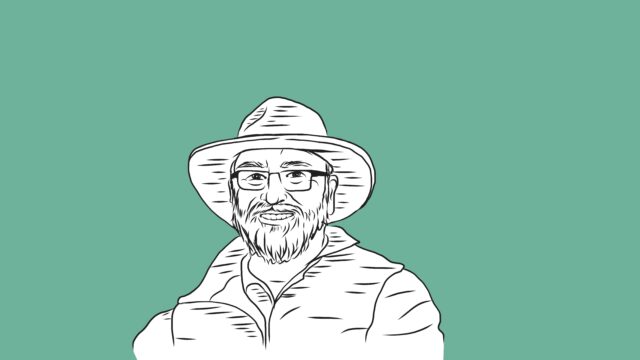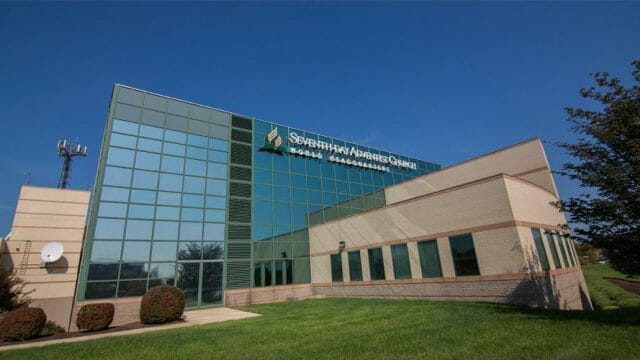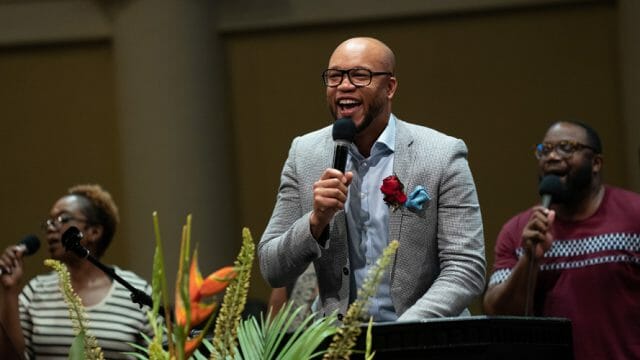Statistics and personal testimonies paint a remarkable story of growth.

Ten years ago, the Seventh-day Adventist Church formed the Middle East and North Africa Union Mission (MENA) to reach out to one of the world’s most difficult regions.
Only time will reveal the full impact of the landmark 2012 decision, but statistics and personal testimonies tell a story of remarkable church growth through the power of the Holy Spirit, church leaders say.
“It is clear that God is moving in the hearts of many, something for which we can thank God,” Rick McEdward, president of the Middle East and North Africa Union Mission since 2016, said.
Ten years ago, with soul-searching and prayer, the world church established the Middle East and North Africa Union Mission from 20 countries that previously belonged to the Trans-European Division and the Euro-Africa Division (now Inter-European Division). The unprecedented decision also attached the Middle East and North Africa Union Mission directly to the world church headquarters and reorganized its services for greater flexibility and support in its mission.
At the time of its organization, the Middle East and North Africa Union Mission reported about 3,100 members among a population of 525 million, or one Adventist for every 170,000 people. By 2021, membership had grown by 85 percent to 5,668 people, or one Adventist for every 99,000 people in a region whose population had expanded to 550 million. In addition, the number of house churches more than tripled from 25 to 85 between 2016 and 2021, and the number of small groups increased from 65 in 2017, the first year they were reported, to 157 in 2021.
McEdward saw the figures as encouraging.
“But even with this commendable growth, the odds are daunting,” he added. “Today, with one member for every 99,000 people, the chance of someone meeting one of our members and hearing the gospel is so very small.”
Only the Holy Spirit can defy the odds and lead people to a church member who can touch them with God’s love, he said.
Four Brothers in a Park
McEdward told the story of a church member who was walking through a city park on his way home from work when he struck up a conversation with four young men, all brothers. The oldest brother had just lost his job, and the four were living in the park. The four men readily accepted the member’s invitation to go to his home, where they were provided with food and rest for several days. After the brothers decided to return to the park, church members visited them regularly with food. The brothers began attending church.
Rayi, one of the brothers, joined prayer meetings and began taking Bible studies. Recently, when the church held an online communion service, Rayi took part from a member’s home, energizing the entire congregation with his joy at following Jesus’ example.
One joyful young man among a regional population of 550 million may seem like a pitifully small return. But the gospel has always changed one heart at a time, McEdward said.
People under the age of 35 represent the largest group to be reached with the gospel in the Middle East.
“Engaging this group, much less speaking to their complex world, presents us with a constantly changing, ever-growing challenge,” ChanMin Chung, director of MENA Trans Media Group, said. The recently formed multimedia organization is tasked with communicating to both the young and old in the region.
Finding Hope on TV
Church media have been making inroads as well. Hassan, who grew up trying to be more devout than anyone else he knew, became skeptical about religion as a young adult.
“I decided to explore the possibility that the whole system I was taught could be going in the opposite direction of the real God,” he said.
That’s when he stumbled across Hope Channel Arabic. The videos he watched answered some questions but raised more. Curious, he called the number on the screen. That contact began a two-year conversation with an Adventist pastor, which led to Bible studies and a desire to be baptized.
“I decided it was time to give my life to the real God,” he said.
Because of COVID-19 restrictions, Hassan hasn’t been baptized yet. But he is not waiting.
“I have already started a Bible study group with 10 of my friends,” he said.
The Middle East and North Africa Union Mission is a challenging field to work, church leaders said. People give their hearts to Jesus in the shadow of national crises, social unrest, economic collapse, immigration, war, and personal trauma.
Unfinished Stories
In the months after Amina’s husband left her, she and her three small children lived on whatever scraps of food they could gather. After standing in the lines outside an Adventist church to collect their monthly food distribution, she found herself wondering why Christians would even care.
One day she decided to find out, so she asked the pastor if she could join the church’s weekly Bible study group. She began attending faithfully and loved what she was learning.
“The kindness I felt when I had so many needs has transformed my life,” she told friends.
She beamed as she spoke about being baptized one day. But that hasn’t happened. Amina suddenly stopped attending the Bible study group. Word came back to the pastor that her husband had suddenly reappeared and, when he learned she was studying the Bible, had threatened her life.
So, as often happens, Amina’s story appears to have paused. It feels like a setback to some church members. But to do God’s work in the Middle East and North Africa region is to know that God has been working on a person’s heart by the time that the person meets a church member. It is to know that God will keep working on the person’s heart after the relationship with the church member ends.
McEdward said the Middle East and North Africa Union Mission has reaped great benefits from the support of the world church, the creativity of the church leaders who shaped the Middle East and North Africa Union Mission 10 years ago, and the faithful service of workers from every country in the Middle East and North Africa Union Mission and others from around the world.
“But the challenges are too great for anyone to claim success, solutions, or self-satisfaction,” he said.
Every day, with its seemingly unbeatable challenges, serves as a reminder that the field, the people, and the harvest all belong to the Lord of the harvest, McEdward said.
“We are privileged just to be His workers,” he said.
The original version of this story was posted on Adventist Mission.








